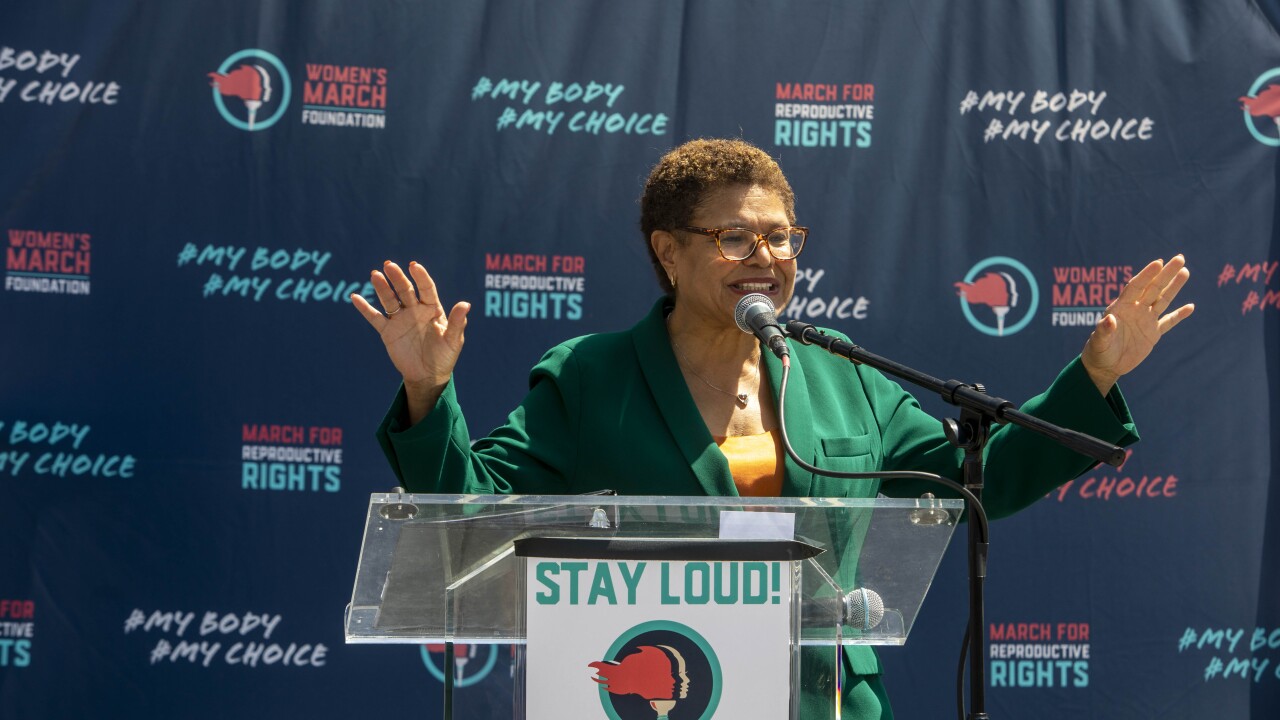The tax-exempt market took a breather, and even firmed up according to some accounts, from a recent selloff that saw muni yields soar almost 40 basis points on the long end.
Traders throughout the day expressed relief that the worst of the price collapse was over, and many said the next few weeks should be smooth sailing.
"I was lying in a pile of blood earlier this week," a Chicago trader said. "But the bleeding has stopped. It was painful to get here, but now all is well and things are back to normal."
He added that while the selloff was crushing, the market needed it. "We needed a change and higher rates. And the worst thing that can happen is we just rally a bunch. We need higher rates to keep buyers."
Other traders said the majority of the selloff was over by Thursday. "I think the bleeding has stopped," a Boston trader said. "It seems steady. It's a good opportunity to bottom-feed if you have cash. And I still think we will see a snap back in January."
And other market participants agreed that with limited supply at the end of the year and January reinvestment money coming due at the start of next year, the market should bounce back. "Munis have been relatively weak lately and institutional funds are selling short-term paper for liquidity purposes," a New York trader said. "Additionally banks are trying to shore up their balance sheets for year end. Rates should firm up after year end and after the uncertainty of the fiscal cliff is behind us."
And while many deals in the primary market were delayed due to poor market conditions, the pause in the selloff Wednesday and Thursday allowed a few issuers to come to market.
"Whether or not it stays, the market took a breather from the recent selloff," wrote Dan Toboja, vice president at Ziegler Capital Markets. "While there were few significant up trades there was enough trading and bidsides were deep enough for particular credits and structures that the bleeding stopped."
He added the Bon Secours Health System Obligated Group composite pricing was oversubscribed and bumped slightly, although the deal came at a much wider spread than expected.
In the secondary market, trades compiled by data provider Markit showed munis were starting to turn positive.
Yields on California 5s of 2042 fell three basis points to 3.42% while California 4s of 2027 dropped one basis point to 3.05%.
Yields on New York City Municipal Water Finance Authority 5s of 2047 dropped two basis points to 3.35% while Chicago 5s of 2033 fell one basis point to 3.51%.
On Thursday, the Municipal Market Data scale ended firmer for the first time in December. The 10-year yield fell three basis points to 1.79% while the 30-year yield dropped two basis points to 2.84%. The two-year finished flat at 0.31% for the third consecutive trading session.
Despite the small gains, the 10-year MMD yield still remains 32 basis points above its record low of 1.47% set Nov. 28 while the 30-year is still trading 38 basis points higher than its record low of 2.47% also set Nov. 28.
Treasuries ended slightly stronger Thursday. The benchmark 10-year yield and the 30-year yield fell one basis point each to 1.80% and 2.98%, respectively. The two-year was steady at 0.28%.
Keeping with recent trends, trading activity increased this week as yields jumped. According to data on odd-lot trades for under $100,000 compiled by BondDesk Group, there was a 1.9 ratio of buy trades to sell trades for the week ending Dec. 19. That is well above the 1.6 ratio of buy to sell trades over the previous three weeks.
Looking closer into the number, there were 79,038 buy trades for the week, up from 66,976 buy trades the week prior and well above each of the previous five weeks. In comparison, there were 42,388 sell trades for the week ending Dec. 19, down only slightly from the previous week's 42,715. Still, sell trades were higher than each of the previous five weeks.
In terms of par amount traded, $2.210 billion of buy trades occurred for the week ending Dec. 19, up from the previous week's $1.903 billion and higher than each of the previous five weeks. Sell trades for also higher with $1.301 billion in sell trades for the week ending Dec. 19, up from the previous week's $1.294 billion and higher than each of the previous five weeks.
In other bond news, tobacco bonds should benefit from news that tobacco manufacturers Philip Morris, Reynolds American, and Lorillard announced a settlement with 19 states regarding a nine-year dispute over payments from a 1998 Master Settlement Agreement.
"There will be a one-time windfall that will improve debt coverage in 2013, but that windfall will be reduced by the 50% refund requirements," wrote Dick Larkin, senior vice president at HJ Sims. "It's too early to make precise calculations for tobacco bond cash flow in 2013 and beyond for the states that signed the new settlement; however if nothing changes and no new states sign the agreement, cash flow shortages and slower than expected turbo redemptions will continue to leave states with projected bond defaults in about 17 to 22 years unless consumption declines improve from their historical negative 4% annual rates."





